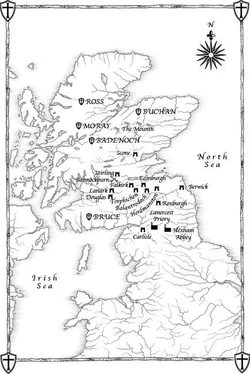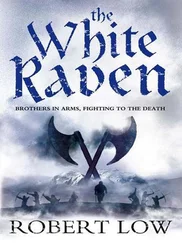Robert Low - The Lion Rampant
Здесь есть возможность читать онлайн «Robert Low - The Lion Rampant» — ознакомительный отрывок электронной книги совершенно бесплатно, а после прочтения отрывка купить полную версию. В некоторых случаях можно слушать аудио, скачать через торрент в формате fb2 и присутствует краткое содержание. Год выпуска: 2013, Издательство: HarperCollins Publishers, Жанр: Исторические приключения, на английском языке. Описание произведения, (предисловие) а так же отзывы посетителей доступны на портале библиотеки ЛибКат.
- Название:The Lion Rampant
- Автор:
- Издательство:HarperCollins Publishers
- Жанр:
- Год:2013
- ISBN:нет данных
- Рейтинг книги:4 / 5. Голосов: 1
-
Избранное:Добавить в избранное
- Отзывы:
-
Ваша оценка:
- 80
- 1
- 2
- 3
- 4
- 5
The Lion Rampant: краткое содержание, описание и аннотация
Предлагаем к чтению аннотацию, описание, краткое содержание или предисловие (зависит от того, что написал сам автор книги «The Lion Rampant»). Если вы не нашли необходимую информацию о книге — напишите в комментариях, мы постараемся отыскать её.
The Lion Rampant — читать онлайн ознакомительный отрывок
Ниже представлен текст книги, разбитый по страницам. Система сохранения места последней прочитанной страницы, позволяет с удобством читать онлайн бесплатно книгу «The Lion Rampant», без необходимости каждый раз заново искать на чём Вы остановились. Поставьте закладку, и сможете в любой момент перейти на страницу, на которой закончили чтение.
Интервал:
Закладка:
The son, delivered by the Devil to the one part of the field of struggling men where he would find Kirkpatrick, the man he hated above all others.
The man who had murdered his father. Aye, Kirkpatrick added bitterly, and would have done for the boy, too — the boy now grown to stand opposite me — if Hal had not intervened.
Badenoch sat for a moment and Kirkpatrick, glancing wildly left and right to see if any help was close, saw his sword sticking in the sere turf like a grave cross. He eyed it, but did not move; like a mouse to the cat, the act of going for it might spring the puss forward and Kirkpatrick did not want that. Not a man on a warhorse, he thought desperately, with blood in his eye …
Then Badenoch, slowly — painfully, Kirkpatrick thought with a sudden thrill — clambered off the beast, which stood, legs splayed and head bowed. The man patted it fondly before he turned, straightened, twirled the sword lightly in one hand and started forward.
Not wounded then, Kirkpatrick thought, just weary, though not as done up as his mount. He sprang then, tore out his sword and turned. Badenoch stopped, close enough for Kirkpatrick to see his face, which was straw-coloured and sheened slick with sweat so that the beard seemed darker and was pearled with droplets. Perhaps he is injured after all, Kirkpatrick thought. Or heat-struck. Not that he was in any better state himself, stiff with sitting and crushed by the unfamiliar weight of maille and pieces of plate steel.
‘You,’ Badenoch declared curtly. Kirkpatrick managed a grin.
‘It was when I rose this morning,’ he replied, and could not resist the vicious stab, for all that prudence told him to toggle his lip: ‘You will be the new Badenoch. I knew your father. I knew you, too, when you were a stripling and would have known you better if someone had not got in the way of it.’
The whey face flushed and then drained to an almost unnatural white; Kirkpatrick saw his knuckles tighten on the hilt of the sword.
Clever Kirkpatrick, he cursed silently, who never could keep his tongue still … the man’s savage rush drove whimpering panic into him and a thrill of shock like a bolt of lightning that seemed to spear through his groin to the soles of his feet.
He barely managed to block the first cut, almost lost the sword parrying the second and slashed wildly right and left even as the echoes of the steel faded and Badenoch drew away.
He knew then, in that first exchange, that a sword was no dirk and that Badenoch, trained knight that he was, younger as he was, would kill him.
Badenoch knew it too, and smiled.
The King wanted to turn and fight. Which was laudable and courageous, but no bloody help at all, de Valence thought bitterly.
‘Your Grace is best kept from the grip of the rebels,’ he explained, though it was hard to seem reasonable and pragmatic when you had to bawl to be heard above the din of an army gone to a baying horde of runners.
Around them, kept away by the hard-faced mesnie , the fleeing mass surged and jostled, battering up to the walls of Stirling, clambering — and falling — from the rock it hunched on, already clotted thick with the peasantry who had run there long before. Perched like gulls on a cliff, they defied the roaring soldiery, who begged and shrieked for entrance at the stubbornly closed gates.
‘My lord de Mowbray,’ the King said and de Valence heard the mix of astonishment, anger and bitterness. There was no point in replying that Mowbray was right to shut the gates of Stirling Castle to everyone, King included — the battle was lost and now he would have to hand Stirling over to the Scots, as agreed. To do other risked slaughter of everyone in it, as per the accepted rules of war, so refusing to let the King into a cage where he was sure to be taken was only sense.
King Edward had none of that left, de Valence saw, only stubborn courage and the surety that they had been, somehow, betrayed. We have been, de Valence thought. Betrayed by our own arrogance, which has been enough to irritate God.
They beat a path through the maggot-boil of infantry, cursing and flailing at them until they parted. They breasted through them, down from the castle, into the coiled loops of the Forth, which forced them back across the littered dead and the howling vengeance of Scots who ruled there now, hunting in wolf packs. De Valence, looking round him, saw a handful of knights and the last remnants of mounted Welsh archers.
‘My lord earl …’
De Valence turned to where old Thomas Berkeley pointed one mailled fist; riders were picking a determined way over the dead and dying, coming at them fast. Like magpies, de Valence thought, attracted to the glitter of that bloody crown.
‘Get His Grace the King away,’ he growled to Vescy, and then detailed off the knights he needed and lowered his helmet visor.
‘ Bonne chance , Pembroke.’
De Valence acknowledged the King’s fading cry even as he spurred the weary warhorse, followed by a tippet of riders. He felt rather than saw the men on either side of him as he cantered up to a low bush and popped a jump, cruel spurs raking his tired horse up to a gallop; he had the surge of exultation, familiar and strangely comforting as old shoes, as the enemy came closer.
Someone streaked ahead — de Valence saw the labelled lion device and noted it for later censure at this outrageous breach of protocol. A Kingston, he registered. Sir John or Sir Nicholas … I shall have words with them later.
They clattered into the riders and swept halfway through them with a series of shrieks and bell-clangs. De Valence took a sweeping blow on his shield, answered it with a pointless one of his own, and then was wheeling round and round in a mad pirouetting dance, striking blows and being struck in turn. Little shaggy men on little hairy horses, like all the Scots, de Valence thought. Knights who ride deerhounds to a battle …
Suddenly, the beating stopped and de Valence, blinking through the sweat-blurred slit of his helm, stopped flailing with his sword, turning his head this way and that to see.
The Scots had all been downed or were running — but more were coming and, worse than that, de Valence saw the mad scramble of axe-wielding foot, with their wild northern cries and bare legs. Rats, lice and Scots, he thought savagely, you can keep killing all three, but no matter where you turn, there they are again …
‘Back,’ he cried, waving his sword in a circle and reining round.
They cantered off, leaving the pursuing Scots floundering and yelling insults. A long way away, riding hard on blowing horses to catch up with the King, de Valence stopped and tore off his helm, whooping in air while the rest of the mesnie cantered up. Some were laughing, mad with excitement still. One — young Hastang — was hauling off his helm and pouring the puke out of it, trying to wipe his face with the decorative mantle dangling from the crest.
It took a moment to find out who was missing: Sir Thomas Ercedene, the Lovel of Northants and the Lovel of Norfolk both — and the brace of Kingstons. Well, de Valence thought dully, no need to find out which of them dared to ride in front of me then.
And old Thomas Berkeley. No one had seen him fall. Back with the King’s party, de Valence broke the news to Maurice, Thomas’s son, and offered up the slim hope that he was captured and not killed — though the memory of those leaping axemen welled in his mind and almost robbed his mouth of the words.
Maurice said nothing, though Addaf saw the tight-lipped tension in the man and hoped he would not do anything mad-brained, like try and avenge his old father. If he did, Addaf thought, he will do it alone — all me and mine want now is to be gone from this place.
Читать дальшеИнтервал:
Закладка:
Похожие книги на «The Lion Rampant»
Представляем Вашему вниманию похожие книги на «The Lion Rampant» списком для выбора. Мы отобрали схожую по названию и смыслу литературу в надежде предоставить читателям больше вариантов отыскать новые, интересные, ещё непрочитанные произведения.
Обсуждение, отзывы о книге «The Lion Rampant» и просто собственные мнения читателей. Оставьте ваши комментарии, напишите, что Вы думаете о произведении, его смысле или главных героях. Укажите что конкретно понравилось, а что нет, и почему Вы так считаете.











